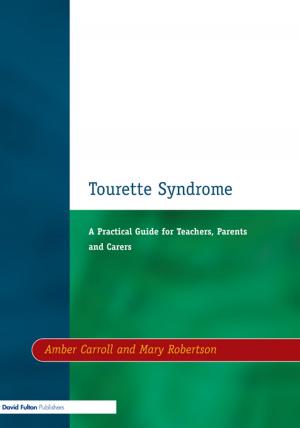Francis Willughby's Book of Games
A Seventeenth-Century Treatise on Sports, Games and Pastimes
Nonfiction, History| Author: | David Cram, Jeffrey L. Forgeng | ISBN: | 9781351935869 |
| Publisher: | Taylor and Francis | Publication: | July 5, 2017 |
| Imprint: | Routledge | Language: | English |
| Author: | David Cram, Jeffrey L. Forgeng |
| ISBN: | 9781351935869 |
| Publisher: | Taylor and Francis |
| Publication: | July 5, 2017 |
| Imprint: | Routledge |
| Language: | English |
Francis Willughby's Book of Games, published here for the first time, is a remarkable work and an invaluable resource for anyone with an interest in early modern social history. Dating from the 1660s, it was left unfinished when the writer died in 1672 at the age of 36. Nevertheless, Willughby's manuscript, even in its unpolished form is a goldmine of detail providing a snapshot of mid seventeenth century life, language and culture. The manuscript itself lists a wide variety of sports, games and pastimes, including football, hurling, card games, tennis and children's games. As well as providing rules and a description of the various games (often with accompanying sketches to explain particular points) there are numerous fascinating snippets of related information (such as the care of fighting cocks), that bring the subject to life, whilst the section on children's games is particularly poignant. Besides the intrinsic interest of the subject matter, the fact that Willughby embarked on the project from a scientific perspective adds to the value of the book. Willughby had been admitted to the Royal Society in 1661 and for a number of years prior to that had been collaborating with the naturalist John Ray. It is clear that Willughby's Book of Games was highly influenced by his scientific pursuits and was an extension of his natural history work, utilising the same skills of systematic observation, description and classification. Providing not only a word-for word transcription of the Book of Games, this volume also contains a host of interpretative material to complement the original data. As well as a biography of Willughby and a detailed description of his manuscript, a substantial glossary of games and obsolete terms is provided, together with a bibliography of Willughby's literary remains and more general reference works. Taken together, this publication provides an unparalleled resource for scholars of early modern England.
Francis Willughby's Book of Games, published here for the first time, is a remarkable work and an invaluable resource for anyone with an interest in early modern social history. Dating from the 1660s, it was left unfinished when the writer died in 1672 at the age of 36. Nevertheless, Willughby's manuscript, even in its unpolished form is a goldmine of detail providing a snapshot of mid seventeenth century life, language and culture. The manuscript itself lists a wide variety of sports, games and pastimes, including football, hurling, card games, tennis and children's games. As well as providing rules and a description of the various games (often with accompanying sketches to explain particular points) there are numerous fascinating snippets of related information (such as the care of fighting cocks), that bring the subject to life, whilst the section on children's games is particularly poignant. Besides the intrinsic interest of the subject matter, the fact that Willughby embarked on the project from a scientific perspective adds to the value of the book. Willughby had been admitted to the Royal Society in 1661 and for a number of years prior to that had been collaborating with the naturalist John Ray. It is clear that Willughby's Book of Games was highly influenced by his scientific pursuits and was an extension of his natural history work, utilising the same skills of systematic observation, description and classification. Providing not only a word-for word transcription of the Book of Games, this volume also contains a host of interpretative material to complement the original data. As well as a biography of Willughby and a detailed description of his manuscript, a substantial glossary of games and obsolete terms is provided, together with a bibliography of Willughby's literary remains and more general reference works. Taken together, this publication provides an unparalleled resource for scholars of early modern England.















